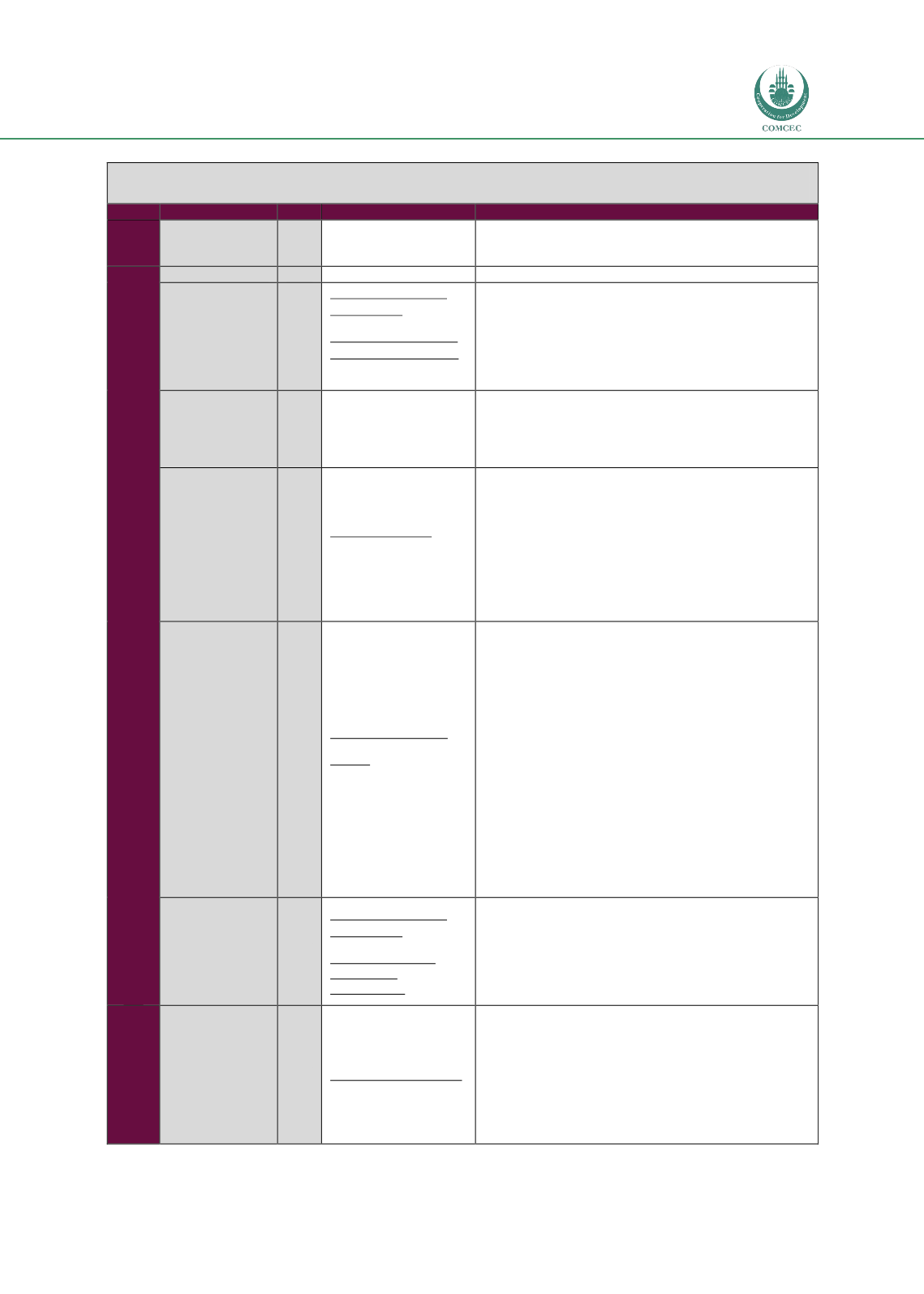

Improving Institutional Capacity:
Strengthening Farmer Organizations in the OIC Member Countries
103
3. Has the Government announced any recent policy initiatives explicitly designed to
encourage farmer organizations?
Group
Country
Y/N
Source
Comments
get from their activities, while making them more actively
involved in the government's effort to conserve water
resources.
Arab Countries (cont’d)
Sudan
N/A
Data not available
Syria
International Labour Organization Ministry of Agriculture and Agrariran ReformsYes. The Syrian government with the help of the UNDP has
made several policies to help empower co-operatives in the
agricultural sector. One of these policies is the Sanduq
initiative. Sanduq means 'box' in Arabic and these Sanadiq
were established as independent small financial institutions
run by the government to help local farmers gain access to
capital to improve their production.
Somalia
Analysis of the Economic
System of Somalia,
Chapter 2 in D. Strangio,
The Reasons for
Underdevelopment
No. Cooperatives were widespread in Somalia until the War
of Ogaden in 1977; after this war, state intervention and
support faded out.
United Arab
Emirates
UAE EncyclopediaYes. The different governments of almost all the emirates in
the UAE have initiated policies with the aim of empowerng
FOs. These intiatives differ based on the different crops that
can grow in different emirates and on the different
challenges that are encountered in these emirates. For
example, in Umm-Al-Qaywin, most of these efforts have
targeted the empowerment of local fishermen, while in Ras-
Al-Khayma, Ajman and Al-Ain, these initiatives were mainly
geared towards FOs that produce crops like dates,
tomatoes, cucumbers and eggplants.
Tunisia
Web Manager Center BabnetYes, mainly much-needed legal reforms. The government
has historically discouraged the creation of FOs. FO leaders
have called for reforms of relevant legal frameworks, which
currently do not allow FOs to function according to their
structures. Problems include the government's intervention
in appointing FO leadership, lack of health insurance, poor
management of financial resources, lack of mentoring
programs, and the unbalanced regional distribution of
population. A member in the Ministry of Agriculture also
admitted the difficult legal framework around FOs. A 2005
law reform shut down 21 companies and
dissolved 58
cooperatives.
There is not enough training from the
government; access to capital and information is scarce. In
November 2012, the government sought to restructure the
legal framework in which FOs operate, sought to create 24
new FOs, and encouraged involvement in FOs. There is no
update on a law that passed to allow for favorable legal
climate to the establishment of FOs.
Yemen
International Labour Organization International Fund Agricultural Development
Yes. The government of Yemen has been particularly
invested in the empowerment of co-operative and FOs in
general. This is the case now and it was also true before the
unification of the country as both the Southern and
Northern governments had based their policies to promote
agricultural production and activity through empowering
the co-operative model
Asian Countries
Afghanistan
World Food ProgrammeYes but cooperatives in Afghanistan are still very weak and
inefficient. In the present post-Taliban era, cooperatives are
encouraged and their establishment is endorsed and
supported by the government. 3000 have been registered
and the 2008-2013 Master Plan set a target of 5000 new
cooperatives. Cooperatives register to receive free or
subsidized inputs but rarely do any collective business.
There is a good number of projects (domestic and external)
that works with farmers' cooperatives, such as the World

















